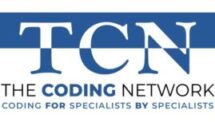Best Practices When Outsourcing Revenue Cycle Management
The revenue cycle is a critical healthcare process, and its management is central to the business of healthcare.
“It’s an area where lots and lots of hospitals struggle and the difference between effective revenue cycle management and ineffective revenue cycle management is success or failure in the industry,” says Jordan Shields, a partner at Juniper Advisory, an independent advisory firm that works exclusively with hospitals and health systems.
For the latter organizations – and others like those in areas with shortages of qualified medical professionals – revenue cycle outsourcing has been a solution.
The Arizona-based integrated medical group of over 650 providers handed over its revenue cycle management operations to the third-party vendor R1 RCM in March after deciding that the group’s core strength is quality clinical care, not revenue cycle management.
That is not to say District Medical Group wasn’t good at revenue cycle management.
The market is slated to grow as providers see revenue cycle outsourcing as a “reasonable solution” for rising costs and administrative burdens, the market research company stated.
Key players in the market during the period will include Conifer Health Solutions, nthrive, Optum360, Change Healthcare, McKesson RelayHealth, Parallon, MedData, MedAssist, The SSI Group, Availity, Accretive Health, GeBBS Healthcare, and Cerner.
“We are one of only a couple remaining independent, community-based, locally-governed healthcare systems, and we very strongly believe that is the very best way that we can serve our community, provide the highest value healthcare, and keep costs down,” says CFO Bill Munson.
Leaders at Boulder Community Health decided to outsource its revenue cycle management operations to Optum in order to support its independence.
The health services business also took over data and analytics and care coordination for the health system, while health system leaders continue to make all decisions regarding patient care and strategic planning.
This type of partnership is not unique to Optum, which partnered with John Muir Health last year to manage the provider’s key non-clinical functions, including revenue cycle management.
More healthcare organizations like District Medical Group and Boulder Community Health will consider revenue cycle outsourcing as leaders try to recover from massive revenue hits resulting from the pandemic, Juniper’s Shields predicted.
COVID-19 has been an unprecedented public health crisis, so it is not surprising that many contingency plans, whether they were crafted by outsourcing companies or businesses in other sectors, did not account for a global event that would shut down entire economies for months.
“They’re still seeing patients, they’re still gathering information that’s sitting there waiting to be coded, sitting there waiting to be billed, payments waiting to being processed, and their hands are tied because their vendor didn’t have a contingency plan and they didn’t have a contingency plan for their vendor not having a contingency plan.
“Provider organizations investing in outsourced revenue cycle services to relieve cost and resource burdens need their firms to take true ownership of the complex revenue cycle and deliver accordingly,” KLAS stated in the report.
This level of attention needs to be maintained, added Shields, who views outsourcing as more of a short- or medium-term fix for providers, rather than a true solution for revenue cycle management woes.
Providers still need some dedicated revenue cycle management staff; their roles are just modified to help ensure outsourcing success by tracking revenue cycle performance and confirming revenue integrity, Znaniec added.
But District Medical Group’s Jones is one of those providers who are confident the group is overcoming the top challenges of revenue cycle outsourcing.
Having that dedicated resource even though most of the actual revenue cycle management functions are done off-site at processing centers is key to getting that level of communication and collaboration needed for outsourcing success.
Accountability is another staple of successful revenue cycle outsourcing, and adding risk to the contract can ensure outsourcing companies are doing what is in the best interest of the provider, not just their own pockets.
But providers need to do their due diligence and vet revenue cycle outsourcing vendors properly.
Eliminating an entire department is not something to take lightly, so providers will need to return to their mission in order to implement the right solution for optimizing revenue cycle management and revenue capture.





